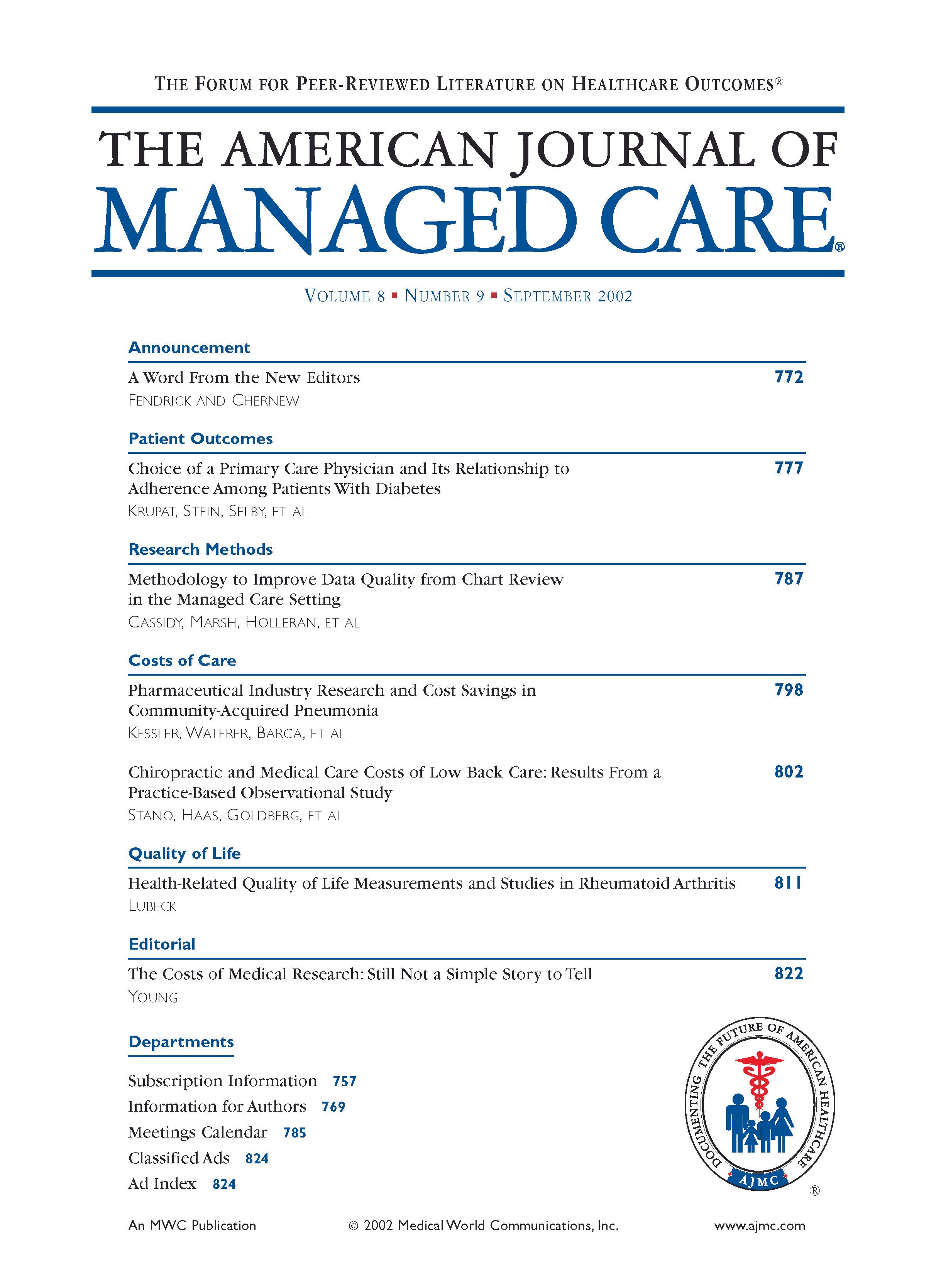- Center on Health Equity & Access
- Clinical
- Health Care Cost
- Health Care Delivery
- Insurance
- Policy
- Technology
- Value-Based Care
Lifestyle/Health Behavior
Assessing Potential Selection Bias in MCO and Community Survey Data
Crain AL, Anderson LH, Martinson BC, Pronk NP, O'Connor PJ, Whitebird RR
Contact:
A. Lauren Crain, Health Partners Research Foundation, PO Box 1524, MS#21111R, Minneapolis, MN 55440-1524. E-mail: lauren.crain@healthpartners.com.
Background: Managed care organization (MCO) member survey data may be subject to bias that affects the generalizability of observed effects to the MCO population or beyond. Selective response from members impacts generalization to the MCO population, while potential selection of individuals into the MCO population damages generalizability to the community.
Objective: To assess potential sources of bias by comparing characteristics of respondents and non-respondents to a general health survey of adult MCO enrollees and community members using administrative and census tract data.
Methods: Two age-stratified random samples of adult MCO enrollees and a simple random sample of adult community members were surveyed. Both sampling frames included age and sex, as well as address information which was used to generate a census-tract-based proxy measure of SES. For the MCO sampling frame, administrative data were also obtained to assess members' enrollment profiles, utilization, and diagnoses related to several chronic conditions over 3 years. The age-stratified MCO samples were weighted to the age distribution of the adult MCO membership and then pooled with the community sample. All sampling frame members were compared by response and MCO enrollee status to assess whether survey respondents were different from non-respondents in age, sex, or SES, and whether any observed effects are similar in the MCO and community samples. Analyses are underway to explore if and how enrollment history, utilization, or chronic disease status may be related to response status among MCO members.
Results: Preliminary results indicate that survey respondents were older and more likely female, and that these differences were similar in the MCO and community samples. Ongoing SES analyses have not yielded any significant effects, and analyses of administrative data for MCO sample are underway.
Conclusions: Managed care organization enrollee surveys may be subject to biases that are similar to those observed in many other survey settings. Ongoing analyses will describe other characteristics that may be related to response likelihood among MCO enrollees.
Subjective and Objective Impacts of Ambulatory AI Scribes
January 8th 2026Although the vast majority of physicians using an artificial intelligence (AI) scribe perceived a reduction in documentation time, those with the most actual time savings had higher relative baseline levels of documentation time.
Read More
Telehealth Intervention by Pharmacists Collaboratively Enhances Hypertension Management and Outcomes
January 7th 2026Patient interaction and enhanced support with clinical pharmacists significantly improved pass rates for a measure of controlling blood pressure compared with usual care.
Read More
HEDIS Glycemic Goal Achieved Using Control-IQ Technology
December 22nd 2025A greater proportion of patients with type 1 diabetes who used automated insulin delivery systems vs multiple daily injections achieved the Healthcare Effectiveness Data and Information Set (HEDIS) glycemic measure.
Read More
Linking Data to Determine Risk for 30-Day Readmissions in Dementia
December 22nd 2025This study found that certain characteristics in linked electronic health record data across episodes of care can help identify patients with Alzheimer disease and related dementias at high risk of 30-day readmissions.
Read More

